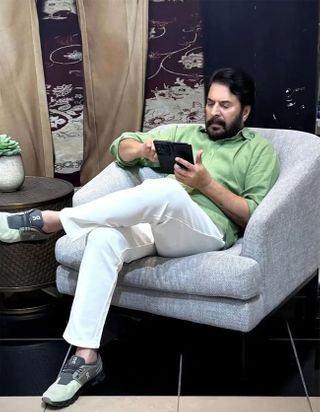
Mary Poppins Returns Movie Review
Spit Spot. Splish Splash. Supercalifragilisticexpialidocious. Mary Poppins is back and so is her quirky way with words. She is beautiful, charming, smart, great with kids and, by her own admission, practically perfect in every way. She sings, she dances, she flies, she nannies, does the impossible on many-a occasion and even promotes Disney's animation prowess but the one thing she can't do is take an average film and make it brilliant.
Mary Poppins Returns, helmed by go-to musical director Rob Marshall, is a sweet and knowing fairytale fantasy that continues the story of the Banks children from the first film, all grown up and depressed during The Great Slump in Britain, and how the Mary Poppins saves a new generation of Banks from an evil lurking presence: the banks (stone and concrete ones).
Considering the glum setting, this sequel is a bit darker and more mature than the original. If the 1964 film was all bright colors and sunshine, this one has gloomy grey clouds hanging over it for the majority of its duration. It's in these moments that Marshall and his writer David Magee find something fresh to say, when the film steps out of its predecessor's shadow to be its own fairytale. Ben Whishaw, the grown up Michael Banks, leads by example in exhibiting the bittersweet undercurrent of these scenes as a man trying to figure out how to save his family's house from being taken away and dealing with his wife's death at the same time. Also the voice behind the kindest bear of all time, Paddington, this time his faith in happiness seems to be on the verge of breaking apart and Whishaw is the right balance of vulnerable and stoic to sell the drama between the music.
Even Emily Blunt, taking over from Julie Andrews as the new iteration of the iconic character of Mary Poppins, brings a fresh take to the character. She is delightful and cheerful and always finds the perfect combination of loud colors but she brings a sadness, a world-weariness to the role too, as if she's seen strain tear families apart one too many times. She doesn't have the saintly and sunny air of Andrews but rather the aura of someone who might herself be struggling to put on those colorful heels every single day and is carrying on simply because she cares too much.
The sequel, however, doesn't score that well when it comes to treading in the steps of the film that gave it life in the first place. The extended animated world sequence, the bedtime song, the workers prancing in unison, Dick Van Dyke, even the penguins from Mary Poppins make a return 54 years later and it's all for the not so better. The songs, by Marc Shaiman and Scott Wittman, are diverting enough and the various otherworldly magical sequences have enough bounce and sugar-fueled creativity to keep the clock moving, but the sense of whimsy and childlike abandon is sometimes noticeably missing. You know you're trying too hard to pump in the sweet jam when you have to fill time by taking a nonsensical detour from the film's own internal logic, just to put in a song and dance sequence with Meryl Streep playing a character named Tatiana Antanasia Cositori Topotrepolovsky, or Topsy for short.
The film also goes the more modern way of having a clearly defined villainous presence to put the blame for all of life's troubles on. Colin Firth, the physical embodiment of said villainy, tries hard to raise the stakes but his character's motivations are ill-defined and his downfall at the hands of a deus ex machina undoes any tough ground he may have covered.
On the whole, Mary Poppins Returns marks a great way to introduce a new generation to the charms of the good old days, when family mattered above all else and fairies came to the rescue when all seemed lost, not superheroes. Unfortunately, Rob Marshall never manages to fully justify the existence of this sequel and turn it into its own classic for the ages. Maybe bigger budgets and better VFX doesn't solve everything at the end of the day. Who knew.









